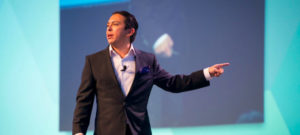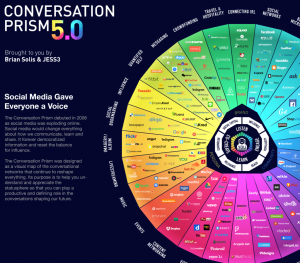
Brian Solis addresses our culture of “likes,” “social media pills,” our “fake lives” on social media and our need to reset our relationship with technology in a blog post article on Singular University’s site called “Selfie-Aspiration: Social Engineering Is Changing our Biology and our Norms and Values.”
Solis writes, “Our attention was hacked and monetized without thoughtful regard to the psychological, emotional, and physical impacts on our health and wellness. This isn’t sustainable. But it’s also the new normal. We can’t wait for standards and ethics to catch up to tech leaders. Instead, we need to invest in our digital well-being to balance, grow, and thrive as we continue to become one with tech.”
He then mentions some of the unusual occurrences with “likes,” including the fact that Instagram recently announced that it’s experimenting with the removal of “Likes” for what it cites as mental health reasons. “Likes” have been linked to unproductive and even harmful behaviors that rewire our brains to crave attention, rewards, and validation; stoke vanity and self-centeredness; and open the door to social comparisons, low self-esteem, negative body image, and more. Industry speculation also suggests that Instagram is also motivated to remove Likes for monetization reasons.
In a section called “The dark side of Likes,” Solis writes: “The reality is that social media continues to affect our physical, mental, and emotional health and wellness, and very little is being done about it. In fact, most of us don’t realize or care to learn what’s happening. The more time we spend on social media without healthy checks and balances though, the greater the effects. Did you know the average teenage girl spends between 6-10 hours a day on social media? When asked, one teenager couldn’t answer why. “Whenever I got bored, I just opened Instagram. What am I doing!?” she exclaimed.”
Solis believes that the hype about intentionally hacking and manipulating the attention economy is very real. Our attention is a currency, and the more of it we give to any one platform, the more it can monetize. While our attention has always been a battleground, these design techniques, referred to as persuasive design, did much more than get us to use apps more. We’re encouraged to consume more content. We’re sharing more of our life than ever. We’re influenced by the activities and images of those we follow more than we realize.
He adds that “Social media, online gaming, and apps are real-time examples of worldwide social engineering. The goal of these apps is to push you outside of your existing norms and values. Again, while not new, the extent of how this is done and how we react is also changing our internal chemistry, rewiring our brains and sending us into uncharted biological and emotional territory.”
After explaining his inspiration for writing Lifescale: How to Live a More Creative, Productive and Happy Life, he writes: “We need a complete reset on life and what it means to be alive and to thrive in an era of extreme social engineering and distractions. We need a new generation of leaders. Leaders who can help not only ourselves, but also teachers, parents, mentors, and health and wellness professionals to rewire humanity productively and happily.”
Read the entire article here: https://su.org/blog/how-social-engineering-changes-our-biology-norms-and-values/





Leave a Reply